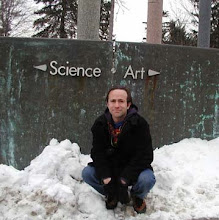“The progressive composition of the common world,” means a discussion where all have a voice. That doesn’t mean they all are equal voices in each discussion, just that no single voice can trump all the others. The words of an expert on climate research carry a certain weight on the subject of climate change in a way that someone isolated from that subject would not have. I understand the concern that such discussions would move too slow, take too long. But perhaps we can see that we’ve moved too fast – rushed headlong into things we didn’t understand at the expense of our health and safety. Latour’s asbestos example speaks to this. The miracle material turns out to not be so risk-free after all, and in having a discussion about its messiness from the beginning, perhaps we’d have never gone down that path.
“Progressive composition of the common world,” has the potential to empower people to realize that they can have a say in matters, and that it makes a difference to become knowledgeable, educated – without the possibility of contributing, why bother with the effort? Latour’s is a potentially game changing argument, and I’m rooting for it. (Though I’m still struggling to find a clear distinction between this and Wilson’s consilience, except in terminology, the spirit feels the same.) – Nick

No comments:
Post a Comment